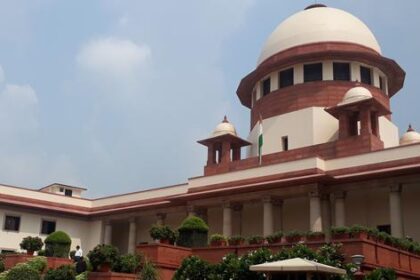Proposed regulations may pose challenges for international doctoral students in the United States.
The United States’ Department of Homeland Security has put forward a proposal that could significantly alter the landscape for international students. The draft regulations aim to limit all international students to a maximum stay of four years in the U.S., irrespective of the length of their academic programs. This change would mark the end of a policy that has traditionally allowed students to remain in the country for the duration of their studies, as long as they maintain their student status.
According to the timeline set by the department, public comments on the proposed rule will be accepted until September 29. Once this period concludes, the agency will review the feedback before finalizing the regulations. Currently, international student visas, known as F visas, permit students to stay in the U.S. for the time it takes to complete their academic programs. If the new rules are enacted, students who require more than four years to finish their courses would need to seek extensions and undergo regular assessments by the Department of Homeland Security.
This proposal is not entirely new; it echoes attempts made during the Trump administration from 2017 to 2021. Those earlier efforts were abandoned under the Biden administration. A spokesperson from the Department of Homeland Security stated that previous administrations had allowed foreign students and other visa holders to remain in the U.S. for extended periods, which they claimed posed safety risks and financial burdens on taxpayers. The spokesperson asserted that the proposed rule aims to address these issues by limiting the duration of stays for certain visa holders, thereby relieving some of the oversight burdens on the federal government.
The potential impact of this change is particularly pronounced for doctoral programs, which often require five to seven years to complete. NAFSA, a non-profit organization focusing on international student issues, highlighted that PhD candidates could face significant challenges. Data from the National Center for Science and Engineering Statistics indicates that the median time for completing a doctorate is 5.7 years, while the National Center for Education Statistics suggests it could take up to 7.3 years.
Many international students, particularly those from India, are currently enrolled in these lengthy programs. A doctoral student at Columbia University expressed concern about the implications of needing government approval to complete their studies, emphasizing that PhD programs do not operate on fixed timelines like other coursework.
Fanta Aw, the executive director of NAFSA, criticized the proposed changes as a dangerous overreach by the government into the academic domain. She argued that such regulations would interfere with academic decisions that should remain within educational institutions. Aw noted that international students are already subject to rigorous monitoring through the Student and Exchange Visitor Information System (SEVIS), and the proposed changes could introduce unnecessary uncertainty into their academic experiences.
Furthermore, NAFSA has been monitoring enforcement actions against international students and reported over 800 cases of visa revocations and record terminations since March 2025. The organization has also indicated that recent visa restrictions and processing delays might lead to a significant decline in the enrollment of new international students, projecting a drop of 30% to 40% this fall. This situation is compounded by ongoing immigration restrictions and increased scrutiny of visa applicants, including temporary halts in visa appointments at U.S. embassies and consulates in India earlier this year.








